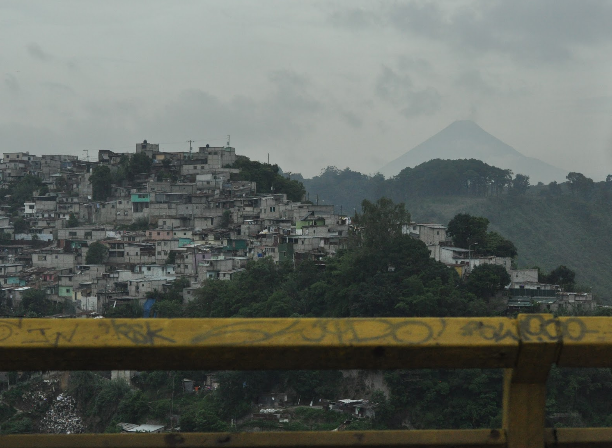This summer, 12 Southern Oregon University students and faculty members traveled to Guatemala for 12 days with the Raider Alternative Break Program to sip coffee, learn the economic issues facing small coffee farms and how the specialty coffee industry is working to improve standards of living for farmers around the world.
The price of coffee in the world commodity market has steadily fallen in two years– currently going for about $0.98 per pound. Nefariously known for boom-bust cycles, the coffee market has been an unstable source of income for thousands of Guatemalans. The consequences are tragic for a country that is recovering from war and genocide.
With little money, many farmers are unable to pay for their children’s school fees or expand their coffee crop. With little to no purchasing power for more land, saplings, organic pesticides, or equipment, farmers are put out of business by epidemics such as the coffee rust fungus epidemic that prompted a national emergency five years ago.
Potential Solutions
Meeting with industry experts, direct trade coffee suppliers and the growers themselves, as well as working alongside the communities they visited in service projects, the 12 raiders learned of potential solutions to these problems.
Possible solutions include coffee farmers pooling their resources in cooperatives, like Santa Anita La Union. Organizations such as De La Gente are also working with farmers and their families to find low-interest loans for more land and equipment, as well as connecting them to more profitable markets.
For coffee farmers around the world, a boom in the specialty-coffee industry, is generating more revenues for the farmers like Santa Anita la Union. These ‘specialty’ coffee shops buy coffee that is grade seventy or above, meaning the coffee is more complex in flavor and value. The coffee shop owners are also traveling directly to farms, meeting farmers, and doing the roasting themselves–a model called “direct trade.”
By cutting out the middleman, direct trade can ensure farmers get higher prices for their beans than from the global commodity market. Some specialty coffee organizations, like De La Gente and even Fairtrade International, offer premiums for farmers when global coffee prices are higher than the usual going rate, creating additional incentives for joining such organizations.
Student Service
On one service project, we learned how trash services in Guatemala are all privatized. Families must pay the equivalent of $36.00 USD for every trash pick up. The Raiders also spent time doing leisurely, fun activities.
The trip to Guatemala included a waterfall hike, a trip across Lake Atitlan one of Latin America’s largest lakes, to small towns with exquisite food and shops. It also included tours of Guatemala’s oldest city, Antigua, which has survived three earthquakes, and time to shop in fair trade stores. We spent a day climbing Mount Pacaya, one of Guatemala’s active volcanoes, and roasted Marshmallows on a two-week old lava flow.
Participants on the trip attended mandatory pre-trip orientation meetings once a week during spring term. That way the participants that went to Guatemala were educated on its history and the way their actions and service could impact the communities they stayed in, so as to minimize this problem.
This will be a featured piece on The Siskiyou’s website. Check in next week to learn more about Southern Oregon University’s Raider Alternative Break Program in Guatemala.
Written by: Jesse Lentz, Staff Writer



